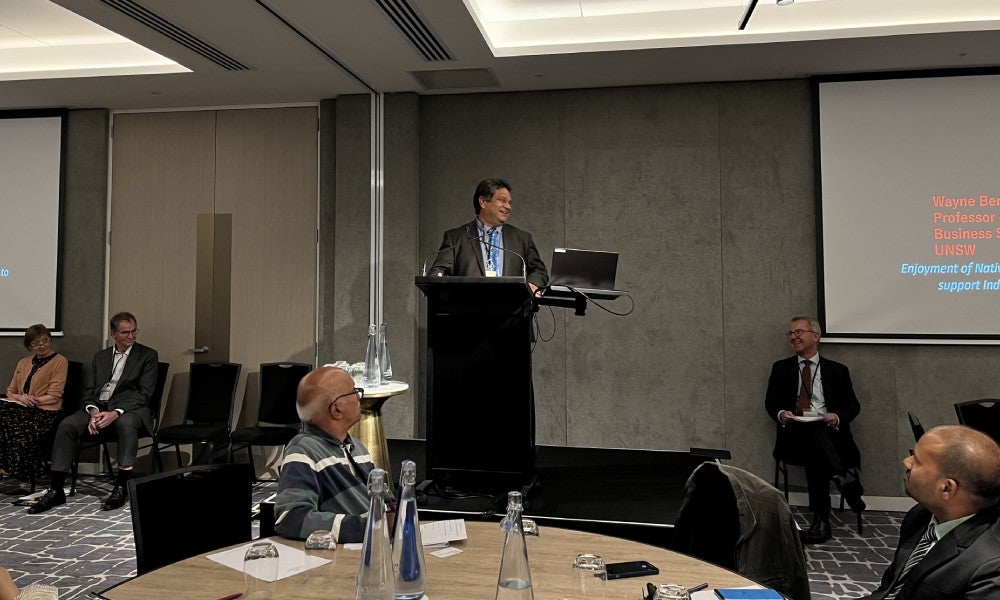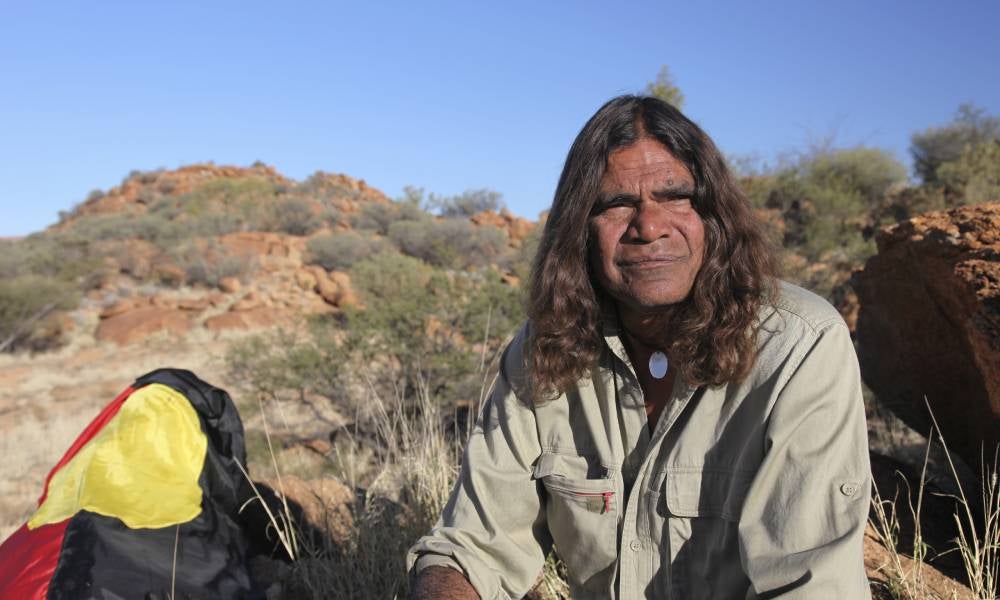The path towards Indigenous economic empowerment
Bridging the gap between traditional knowledge-based values and the modern capitalist model is critical to Indigenous economic empowerment
Significant progress has been made towards enshrining an Indigenous Voice in the Australian constitution, which would see the appointment of an independent and permanent advisory body to advise Parliament and the Government on matters that affect the lives of Aboriginal and Torres Strait Islander peoples. On 31 May, the legislation to set up the Voice referendum passed the House of Representatives, and the bill will be put forward to the Senate before the federal government sets a date for the public poll later in the year.
While progress has been made, there is still more work to do in pursuing Indigenous economic empowerment, which is needed to address historical injustices and create opportunities for self-determination. By recognising the importance of Indigenous cultures, knowledge, and land rights, and the history of lost land and property rights, Australia can and should forge a path towards inclusive economic development that honours the unique perspectives and contributions of its First Nations people, says Wayne Bergmann, Professor of Practice at UNSW Business School.
Mr Bergmann is a Nykina man descended from the Kimberley region in Western Australia. For the past 30 years, he's been working to empower Aboriginal people as both a strong cultural leader and a participant in the modern economy and is often called upon to assist with negotiations with the mining industry and Native Title Groups. Recognised as one of Australia's leading advocates for Indigenous self-determination through economic empowerment and opportunity, Mr Bergmann was formerly CEO of KRED Enterprises, CEO of the Kimberley Land Council, and Managing Director of Aboriginal Maritime Pty Ltd (AML). He is currently Executive Chairman of National Indigenous Times News and Managing Director of Leedal, an Indigenous business foundation that operates two hotels, a supermarket, and a mechanics business.
Speaking at the 15th International Conference on Tax Administration hosted by UNSW Business School, Mr Bergmann discussed how Australia could achieve Indigenous economic empowerment. Specifically, he emphasised the need for tax incentives, investment vehicles, and practical solutions to support Indigenous businesses and bring about social change within the existing financial framework.

The challenges of the current economic system
In February this year, the Australian Securities and Investments Commission published the Indigenous Financial Services Framework to help deliver positive financial income outcomes for First Nations peoples. But the reality of the problems Indigenous Australians face regarding equal economic opportunities is that the current economic system needs to be set up to support this.
“Indigenous culture is based on the intellectual property economy; we've got a knowledge-based economy that drives value,” explained Mr Bergmann. But he acknowledged that this doesn’t fit in neatly with the current capitalist economic model.
“I was motivated by Aboriginal people in the economy because that can create positive social change. And I'm struggling with this liberal society about equality and fairness in the context of native title holders, Aboriginal people, or traditional owners or First Nations people, and capitalism, ultimately… we're locked out of capitalism. We're locked out of building our own economy because the institutional structures don't work,” said Mr Bergmann.
Read more: The Voice already exists… just not everywhere
One solution, according to Mr Bergmann, is to create investment-ready vehicles that endorse local entities to drive investment and business on Aboriginal land. A vehicle that investors understand and know the rules on how their money is safe and what risk is attached to the investment would encourage investment in a special endorsed entity that provides tax incentives, explained Mr Bergmann. These would enable Indigenous Australians to participate in the economy (and do things every Australian can choose to do on land they own under Australia’s land tenure system).
“Within the current economic system, you can unlock this by creating investment-ready vehicles. I don't think we've established one [yet]. I think that this is where I got a sense the tax office policy was more open to looking at doing things differently,” he explained.
“The Native Title Act... says if you don't do a deal within six months, you lose the right, and the mining company can take your land without any compensation. That's the liberal system’s version of equality, this isn’t fair and doesn’t help us build a good society that participates in the modern economy. We want the right balance to participate in the economy. So how do we get there? Through investments,” he said.
“I think you need a special endorsed local entity that drives investment to do business on Aboriginal land and with Aboriginal people. Because getting access to capital (in my view) is one of the biggest challenges in driving business,” he said.
Read more: Healing intergenerational trauma through meaningful work
The role of Indigenous native title and land rights
Mr Bergmann also discussed how native title legislation and land tenure on Indigenous communities directly impact their ability to engage in business activities. He said addressing equity and participation at the front end of negotiations and ensuring Indigenous peoples' fair share of the benefits of industries operating on their lands is vital to providing honest and equitable economic access.
“Like it or not, you're going to have to deal with Aboriginal people; you're going to have to deal with First Nations people because as weak as it is, there are native title rights and interest. And there are other forms of tenure for Aboriginal people all over Australia,” explained Mr Bergmann.
"So, rather than put your head in a hole, let's work out a system where Traditional Owners First Nations people can prosper as part of the economy.”
And while traditional owners have to “play the game within the current corporate and business structure”, he said it was possible to make this process fairer for everyone. “We all live in a wage economy, right? So we all understand that we all have to participate in it. But we don't need to sell our souls to do things we don't have to do. We want to create jobs and business opportunities for the community; we want best practices,” he said.
Yet, more work is needed still. “What I learned when I was chair of the Coalition of Australian Governments (COAG), Expert Working Group on Aboriginal economic development and land tenure, mining companies were doing different deals in Western Australia compared to Queensland; there is no benchmarking, no standards – it is individualism. So, I think these issues must be addressed (like standardise agreement-making),” he said, reiterating the findings of the group’s report.

Unlocking economic opportunities through investment-ready vehicles
Aside from investment-ready vehicles, tax incentives could also be used to help prop up Indigenous businesses. The current tax system significantly impacts Indigenous communities, and Mr Bergmann discussed the need for reforms to promote equity, social well-being, and economic development among First Nations peoples.
Indeed, Mr Bergmann said the tax administration must transform to accommodate Indigenous communities' unique economic circumstances and objectives. “The current tax system does not promote equity and participation for First Nations people,” he said. As such, front-end participation is also crucial, given that currently, negotiations often result in minimal benefits for Indigenous communities.
“So when the industry or proponents are talking to us, they should address the equity and our participation at the front end... When you live in regional, remote areas, the reality is Indigenous people get the scraps of what is left over,” he said.
Subscribe to BusinessThink for the latest research, analysis and insights from UNSW Business School
Renewed tax incentives would play a crucial role in stimulating investment vehicles, and the result would create progress towards the path of Indigenous economic empowerment.
“If there was a process to endorse charity vehicles, we could have the same to endorse an Indigenous First Nations corporation with great tax incentives... I believe investors will come running,” concluded Mr Bergmann. Then the market will be driven to participate with First Nations corporations because it would be good business.
Authorised by Alison Avery for the University of New South Wales, Kensington.
